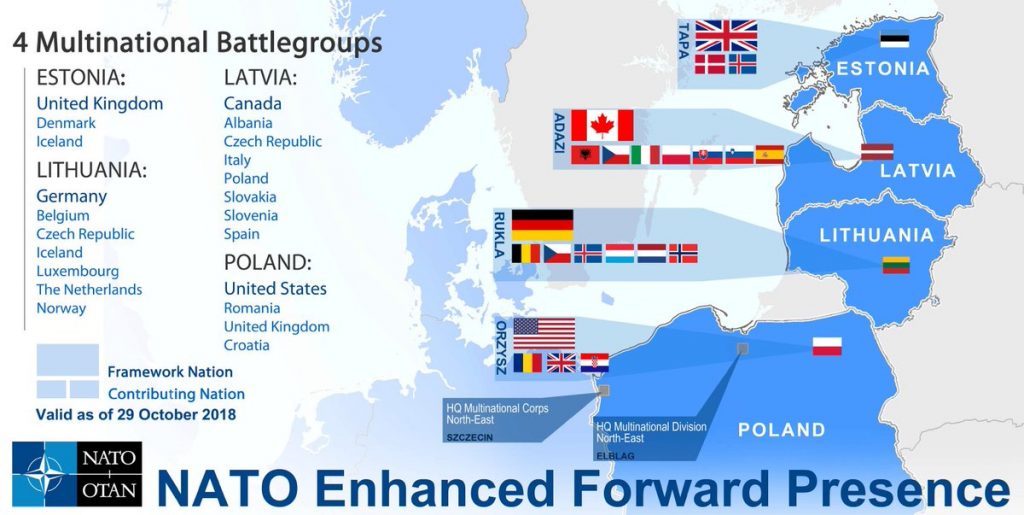The Belarusian Telegraph Agency reported today on a statement by the nation’s top commander concerning the build-up of NATO military infrastructure on the borders of both his nation and Russia.
Speaking at a meeting of the six-nation Collective Security Treaty Organization’s (CSTO) Military Committee in Moscow, the head of the Belarusian armed forces general staff and First Deputy Defense Minister Viktor Gulevich spoke in depth about recent developments in Eastern Europe, where a third of the organization’s members – Belarus and Russia – are. (The remaining members being in the South Caucasus and Central Asia: Armenia, Kazakhstan, Kyrgyzstan and Tajikistan.)
In particular he addressed continuing and growing activities by the North Atlantic Treaty Organization in northeastern Europe, near the Belarusian and Russian borders, including the activation of reconnaissance and intelligence-gathering centers, the establishment of transportation depots and the upgrading of military facilities, including infrastructure able to accommodate forward-deployed troops.

By notifying fellow CSTO member states of the threat posed by the NATO build-up near his nation’s borders Gulevich has laid the groundwork for a possible appeal to the CSTO to assist the two affected countries in the event of aggression by NATO or individual members (Lithuania and Poland) of the military bloc.
However, Belarus could hardly expect nations like Armenia to rush to its defense as the other five members of the CSTO did nothing last year when the small ethnic-Armenian enclave of Nagorno-Karabakh was attacked by Azerbaijan, not a CSTO member, with the active assistance of NATO member Turkey.
In fact yesterday Belarusian President Aleksandr Lukashenko met with his Azerbaijani counterpart Ilham Aliyev for a reported five hours, a meeting lasting past midnight, after which Lukashenko said of the fait accompli forced on Nagorno-Karabakh and Armenia last year:
“We sincerely welcome the agreement on a complete cessation of hostilities in the Nagorno-Karabakh conflict zone. This is an important political decision which should pave the way for lasting peace in the region.”
The very nature of a collective security alliance is precisely for members to support each other when one or more is a victim of military aggression. Not only Nagorno-Karabakh but Armenia itself – Azerbaijan shot down a Russian military helicopter, killing its crew members, over Armenia last November – were attacked by a NATO proxy army and any organization like the CSTO that didn’t in any manner respond to that outrage will not be taken seriously by NATO as it continues to organize armed intervention against Belarus. And Russia.
Rick Rozoff has been involved in anti-war and anti-interventionist work in various capacities for forty years. He lives in Chicago, Illinois. He is the manager of Stop NATO. This originally appeared at Anti-Bellum.


